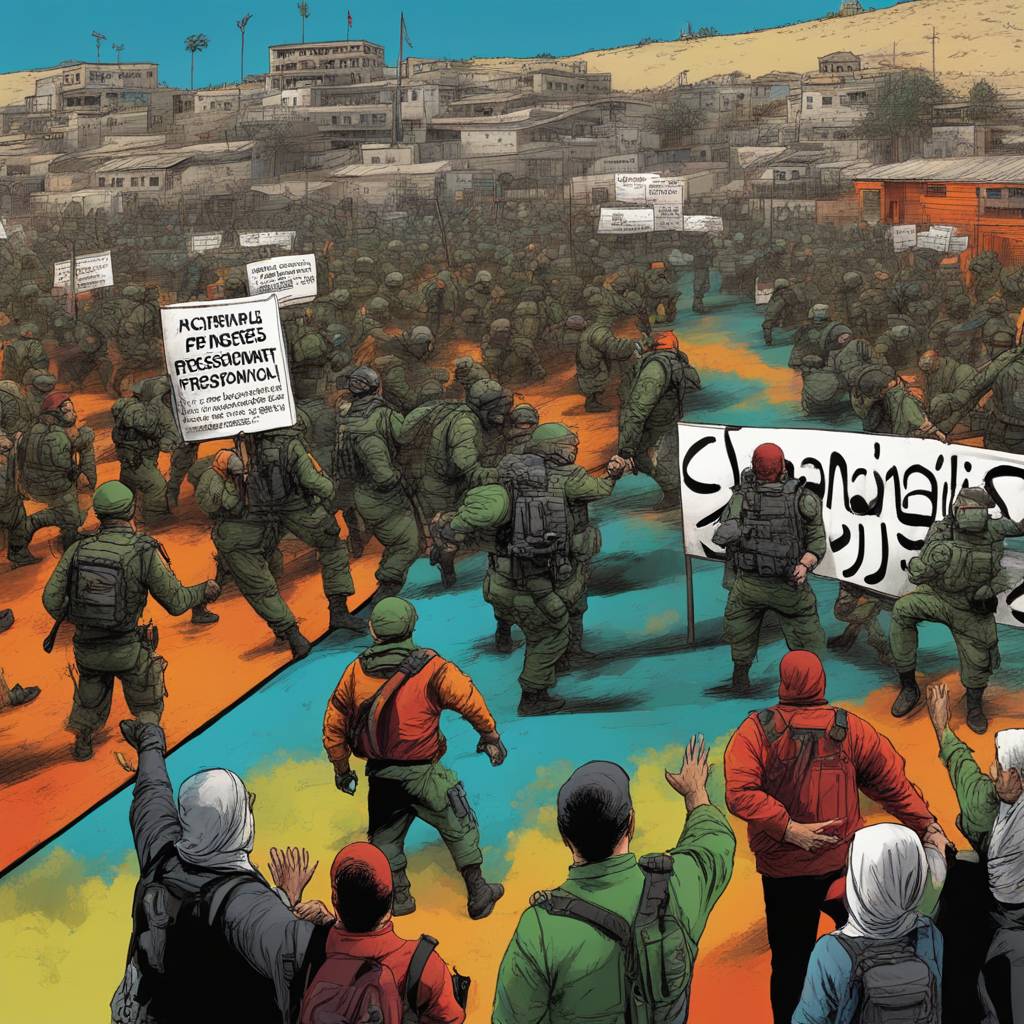Israel has agreed to a US proposal on a prisoner-hostage exchange that would release around 700 Palestinian prisoners, including 100 serving life sentences for killing Israelis, in exchange for the release of 40 Israeli hostages held by Hamas in Gaza. CNN analyst Barak Ravid reported on the recent talks in Doha, Qatar, where Israel agreed to make significant compromises to bring the abductees home. The exchange is based on a bridging proposal from the US, with outstanding issues remaining such as aid entry and Israeli military repositioning in Gaza. Hamas is expected to respond in one to three days.
The proposal was put forth by CIA Director Bill Burns, who was in Doha mediating talks between Hamas and Israel. Hamas’ response is expected to come from leader Yahya Sinwar in Gaza, who is underground and may take time to reach a decision. The exchange is likely to include American hostages due to the release of men over 50 years old. Hamas had previously demanded the release of 700 to 1,000 Palestinian prisoners, which Israel deemed ridiculous and absurd. The agreement is expected to have multiple phases, with the first stage focusing on releasing women, elderly, sick, and wounded hostages.
The prisoner-hostage exchange is a complex negotiation with significant implications for both Israel and Hamas. Israel’s willingness to make compromises shows their commitment to bringing their citizens back home, while Hamas’ demands for prisoner release reflect their desire to secure the release of Palestinian detainees. The involvement of the US, through CIA Director Bill Burns, highlights the international significance of this exchange and the importance of reaching a peaceful resolution. The talks in Doha are ongoing, with both sides working towards a comprehensive agreement that addresses all outstanding issues.
The proposed exchange involves a large number of Palestinian prisoners and Israeli hostages, with each side needing to make concessions for the deal to succeed. Israel’s agreement to release prisoners, including those serving life sentences, is a significant step towards reconciliation with Hamas. The release of women, elderly, sick, and wounded hostages in the first phase of the agreement demonstrates a humanitarian approach to resolving the conflict. The involvement of mediators and diplomats in the negotiation process indicates a commitment to finding a peaceful resolution that benefits both parties.
The story is evolving, with updates expected as Hamas responds to the proposal and additional details are finalized. The exchange has the potential to have a lasting impact on the Israeli-Palestinian conflict and could set a precedent for future negotiations. The willingness of both Israel and Hamas to engage in talks and consider compromises is a positive sign for the region’s stability. As the negotiations progress, it will be crucial to address all outstanding issues and ensure the safe return of all hostages involved. The international community will continue to monitor the situation and provide support as needed to achieve a successful outcome.


